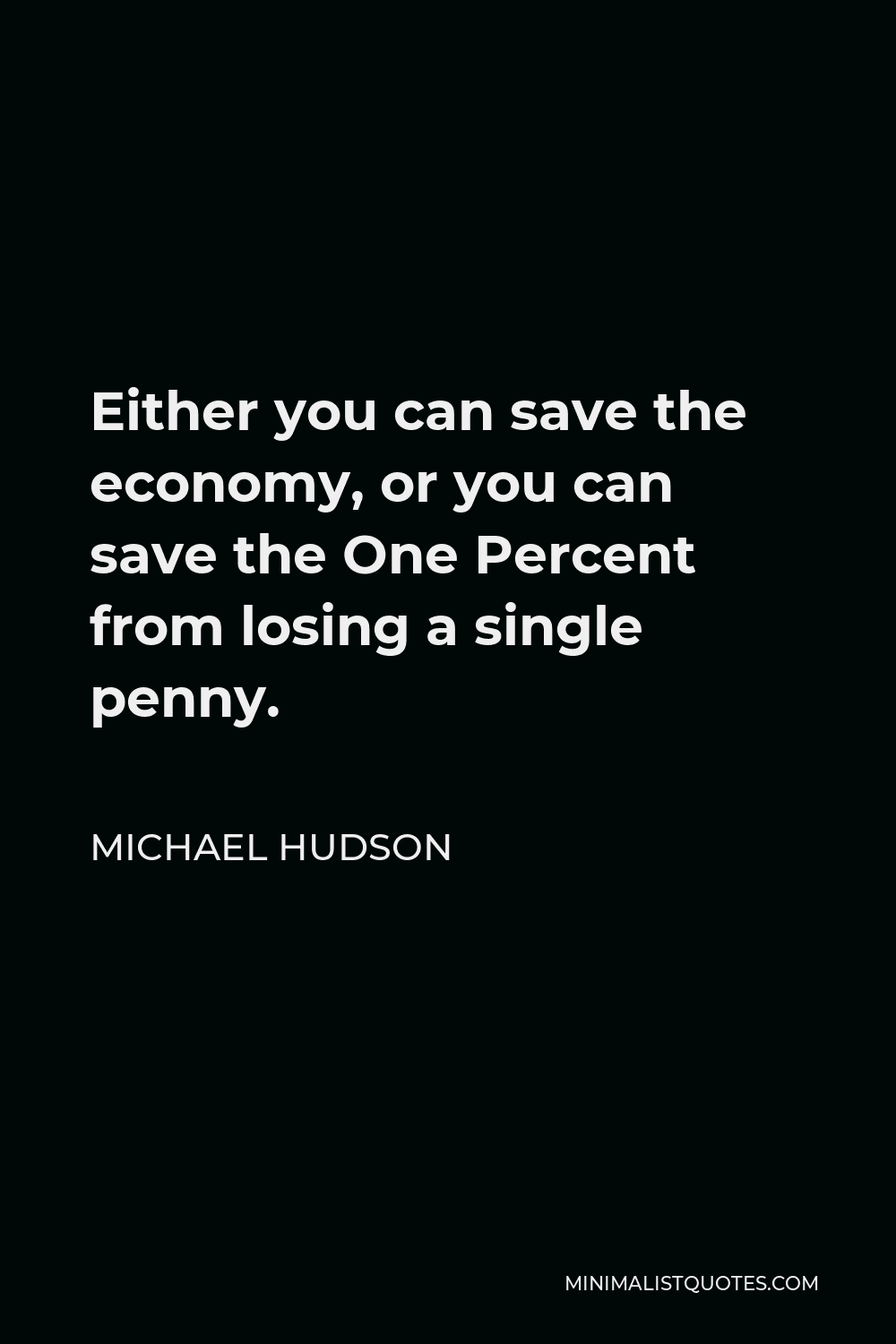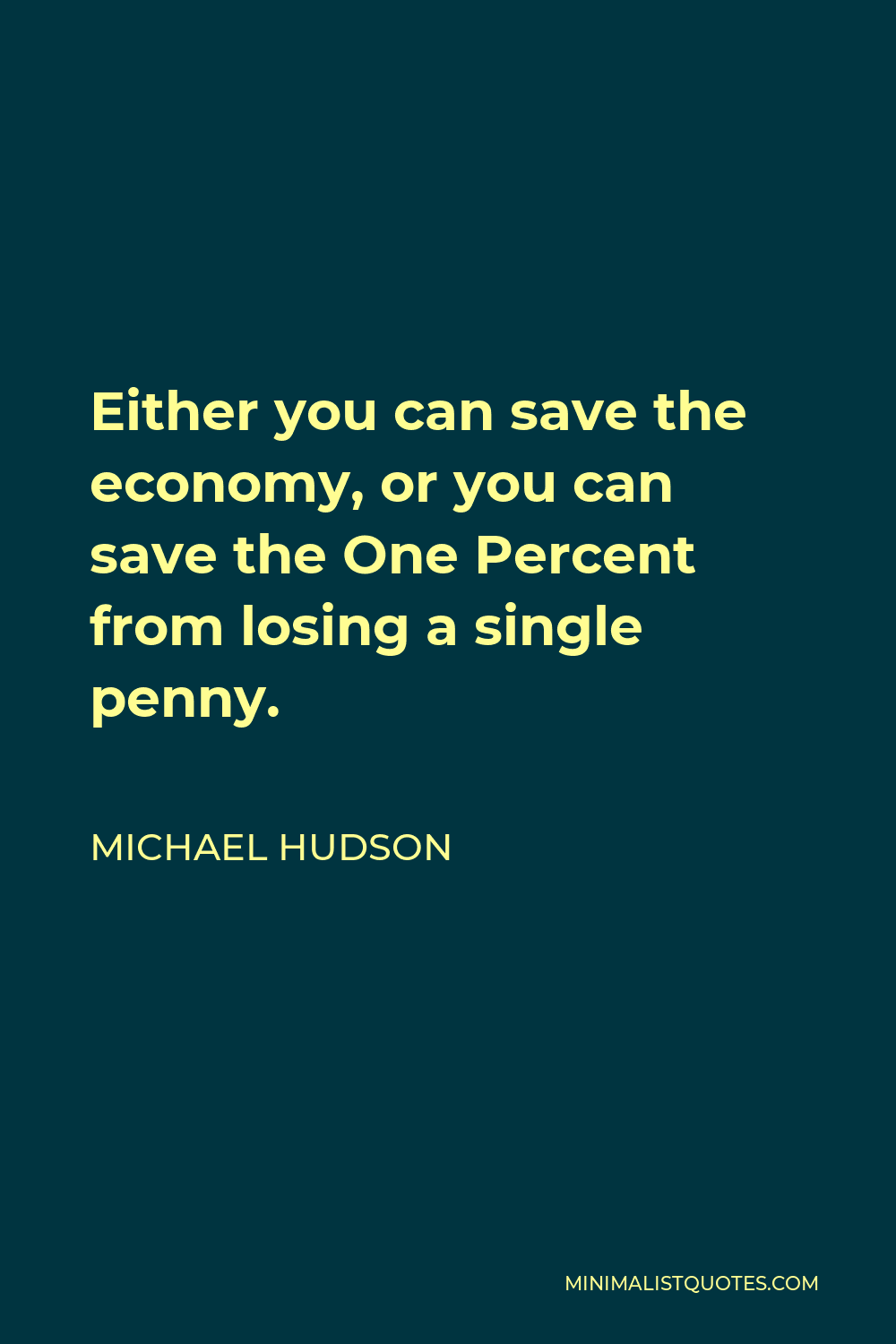You have to abolish pension plans. You have to abolish social spending. You have to raise taxes.
MICHAEL HUDSONEither you can save the economy, or you can save the One Percent from losing a single penny.
More Michael Hudson Quotes
-





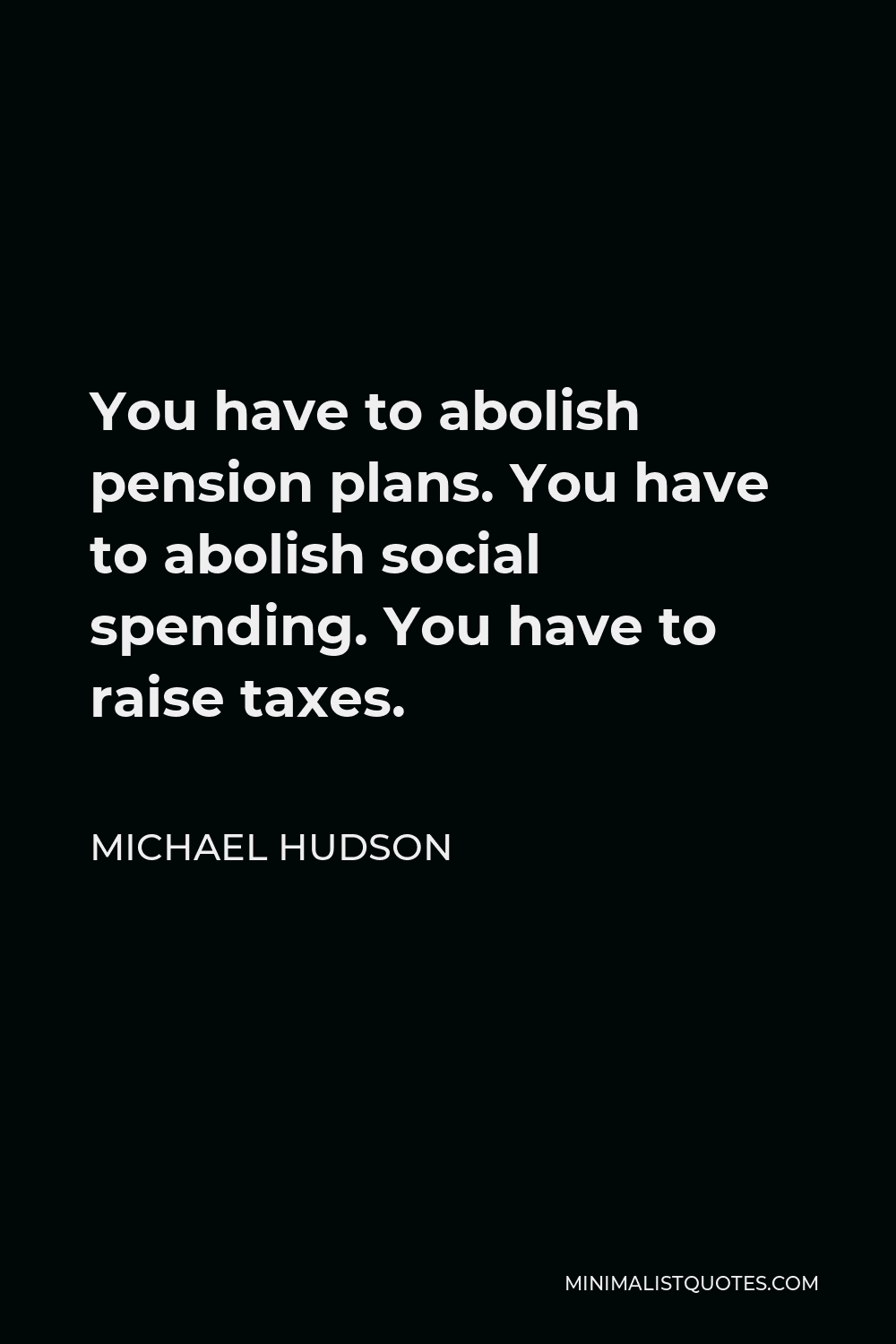
-





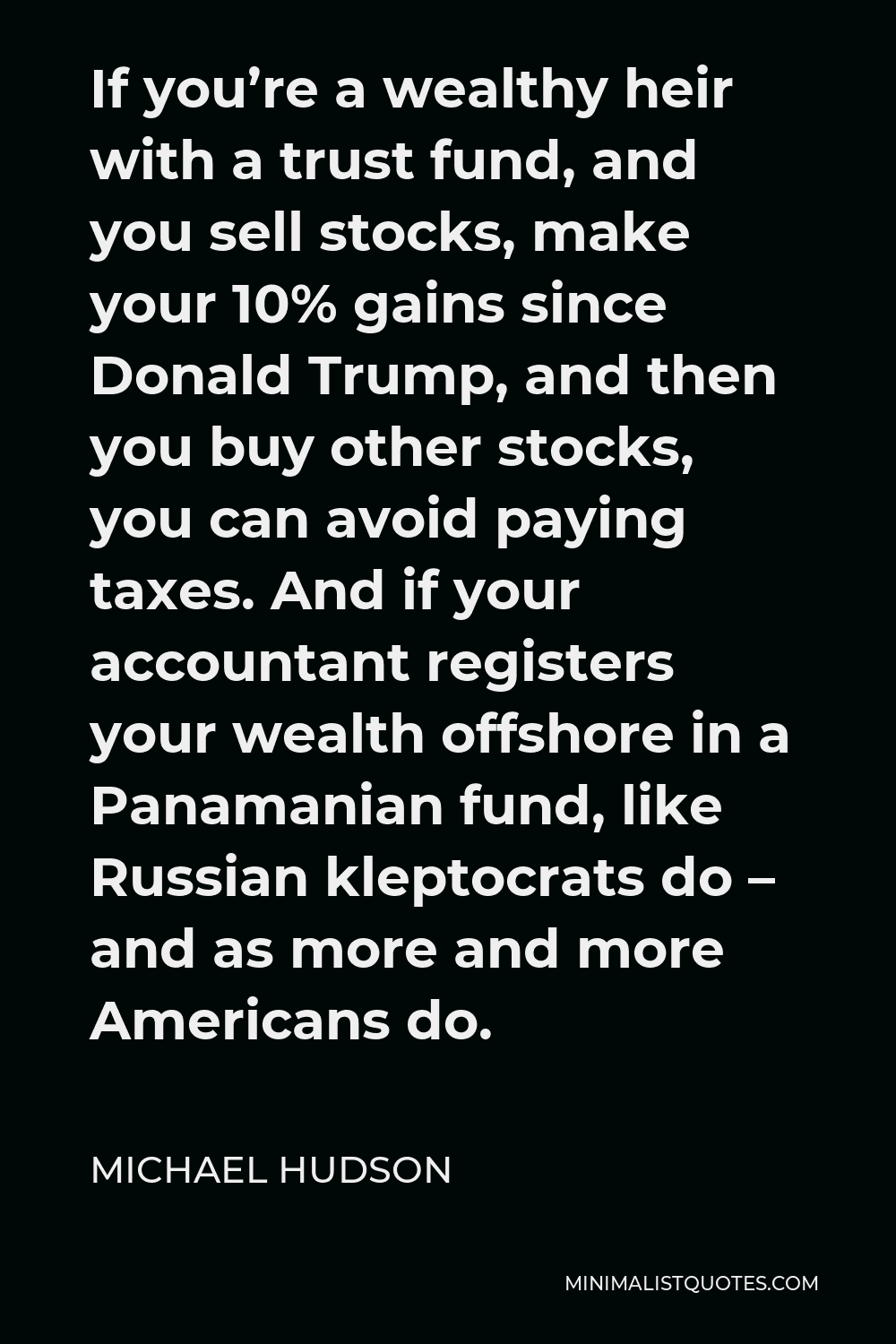
If you’re a wealthy heir with a trust fund, and you sell stocks, make your 10% gains since Donald Trump, and then you buy other stocks, you can avoid paying taxes. And if your accountant registers your wealth offshore in a Panamanian fund, like Russian kleptocrats do – and as more and more Americans do.
MICHAEL HUDSON -







The parasite can’t simply come in and take something. First of all, it needs to numb the host. It has an enzyme so that the host doesn’t realize the parasite’s there.
MICHAEL HUDSON -





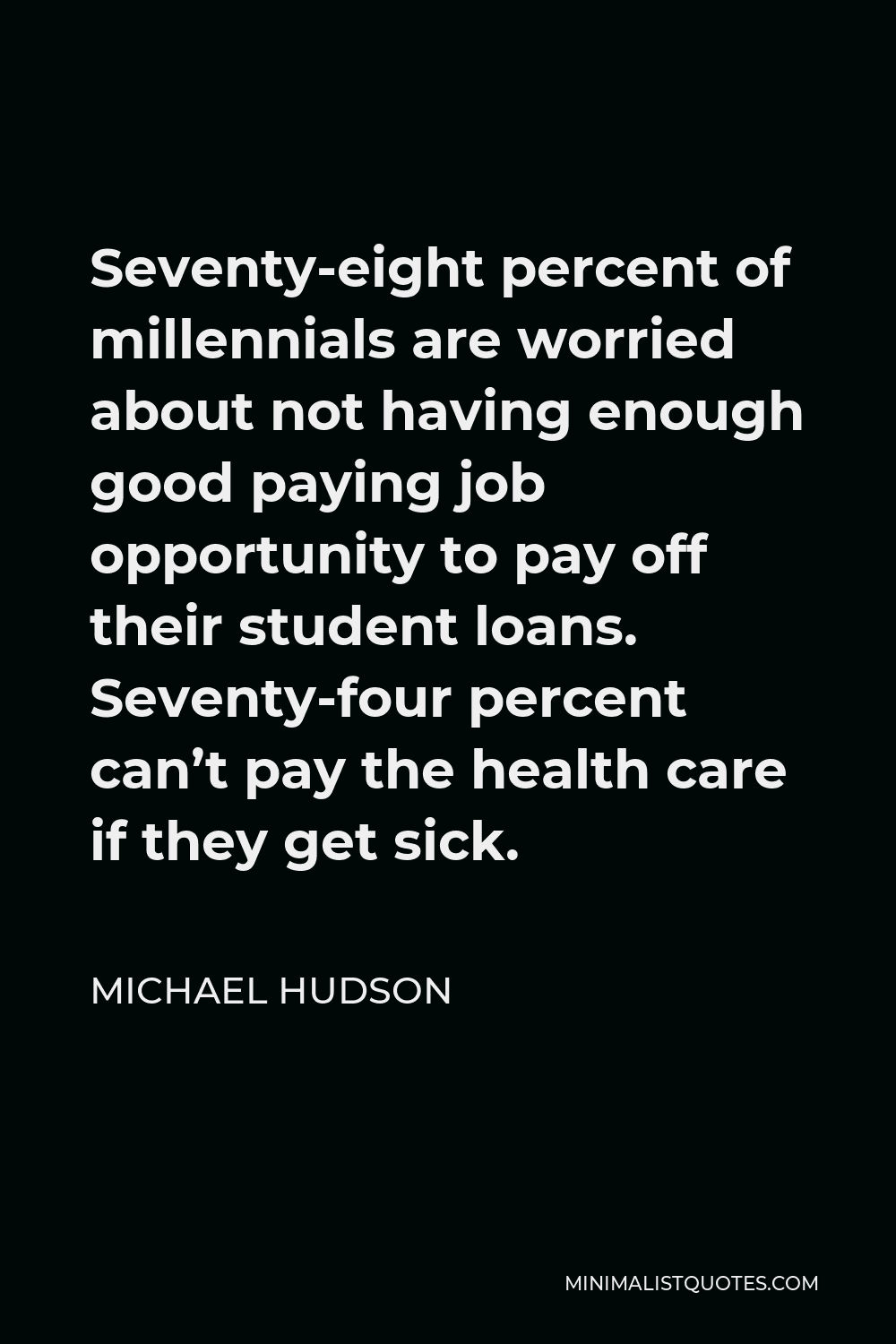
Seventy-eight percent of millennials are worried about not having enough good paying job opportunity to pay off their student loans. Seventy-four percent can’t pay the health care if they get sick.
MICHAEL HUDSON -







What’s the best gamble in the world, right now? Its betting that Deutsche Bank stock is going to go down. Short sellers borrowed money from their banks to place bets that Deutsche Bank stock is going to go down.
MICHAEL HUDSON -





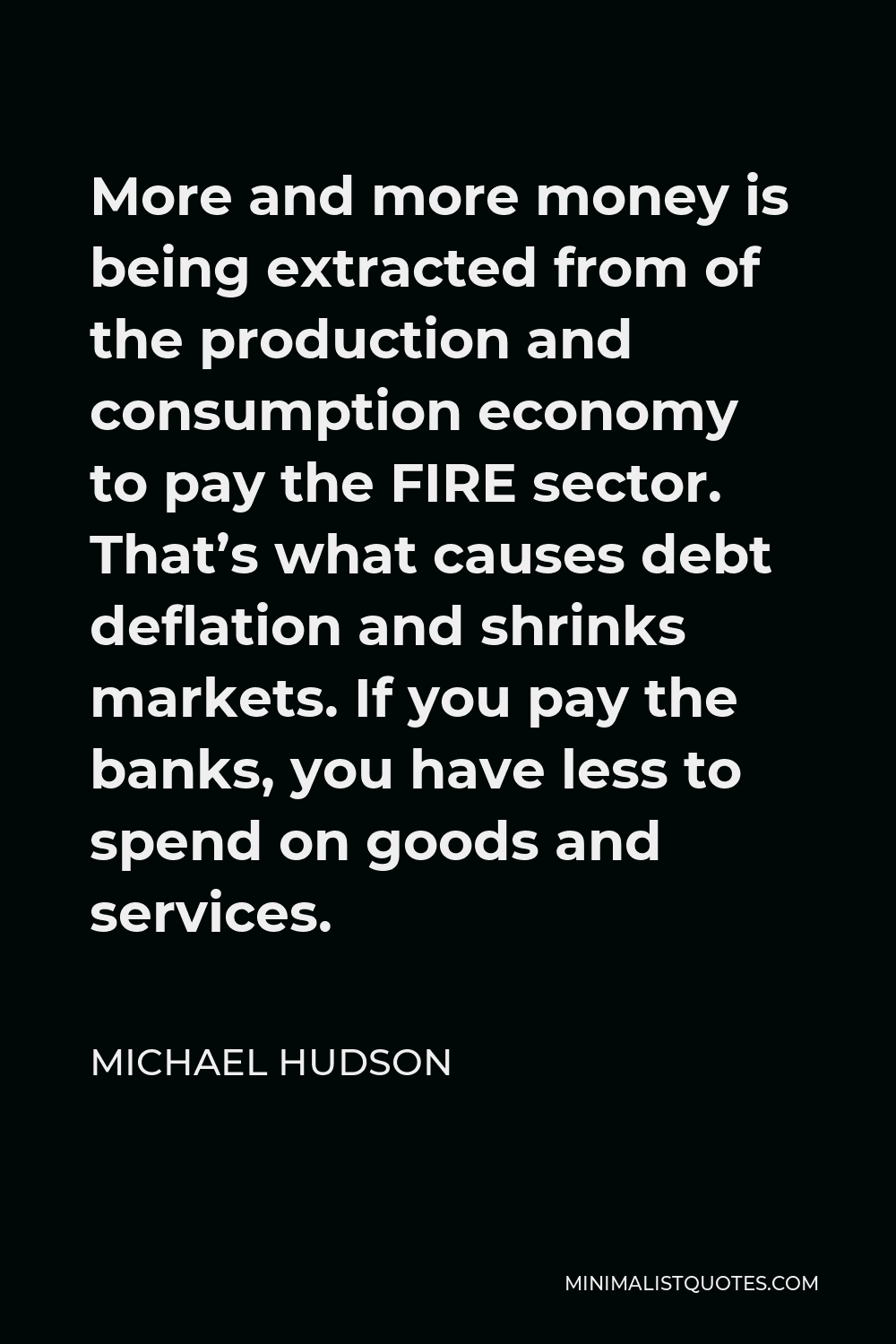
More and more money is being extracted from of the production and consumption economy to pay the FIRE sector. That’s what causes debt deflation and shrinks markets. If you pay the banks, you have less to spend on goods and services.
MICHAEL HUDSON -







I guess the main thing that came out of the Panama Papers was that Ukrainian President Poroshenko had promised to divest of his chocolate company and instead, he simply moved it into an offshore account.
MICHAEL HUDSON -






Every government, from the Obama administration right through to Angela Merkel, the Eurozone and the IMF, promise to save the banks, not the economy.
MICHAEL HUDSON -






Normally, if someone goes bankrupt, you wipe out the debt and get a fresh start. But that’s not permitted with student loans. So the effect is to impoverish many graduates with very high debts.
MICHAEL HUDSON -






When we say “people worry” about inflation, it’s mainly bondholders that worry. The labor force benefitted from the inflation of the ’50s, ’60s and ’70s.
MICHAEL HUDSON -





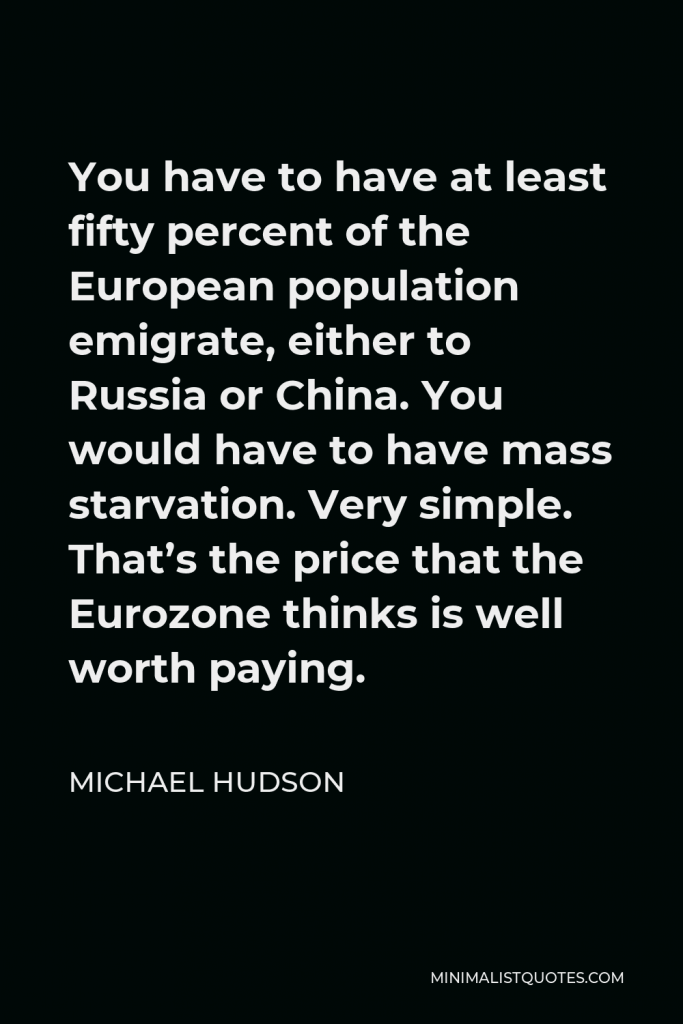

You have to have at least fifty percent of the European population emigrate, either to Russia or China. You would have to have mass starvation. Very simple. That’s the price that the Eurozone thinks is well worth paying.
MICHAEL HUDSON -






Today, people are having to spend so much of their money, to acquire a house and to get an education that they don’t have enough to spend on goods and services, except by running into yet more debt on their credit cards and other borrowings.
MICHAEL HUDSON -






The one sure mark of a con, though, is the promise of free money.
MICHAEL HUDSON -





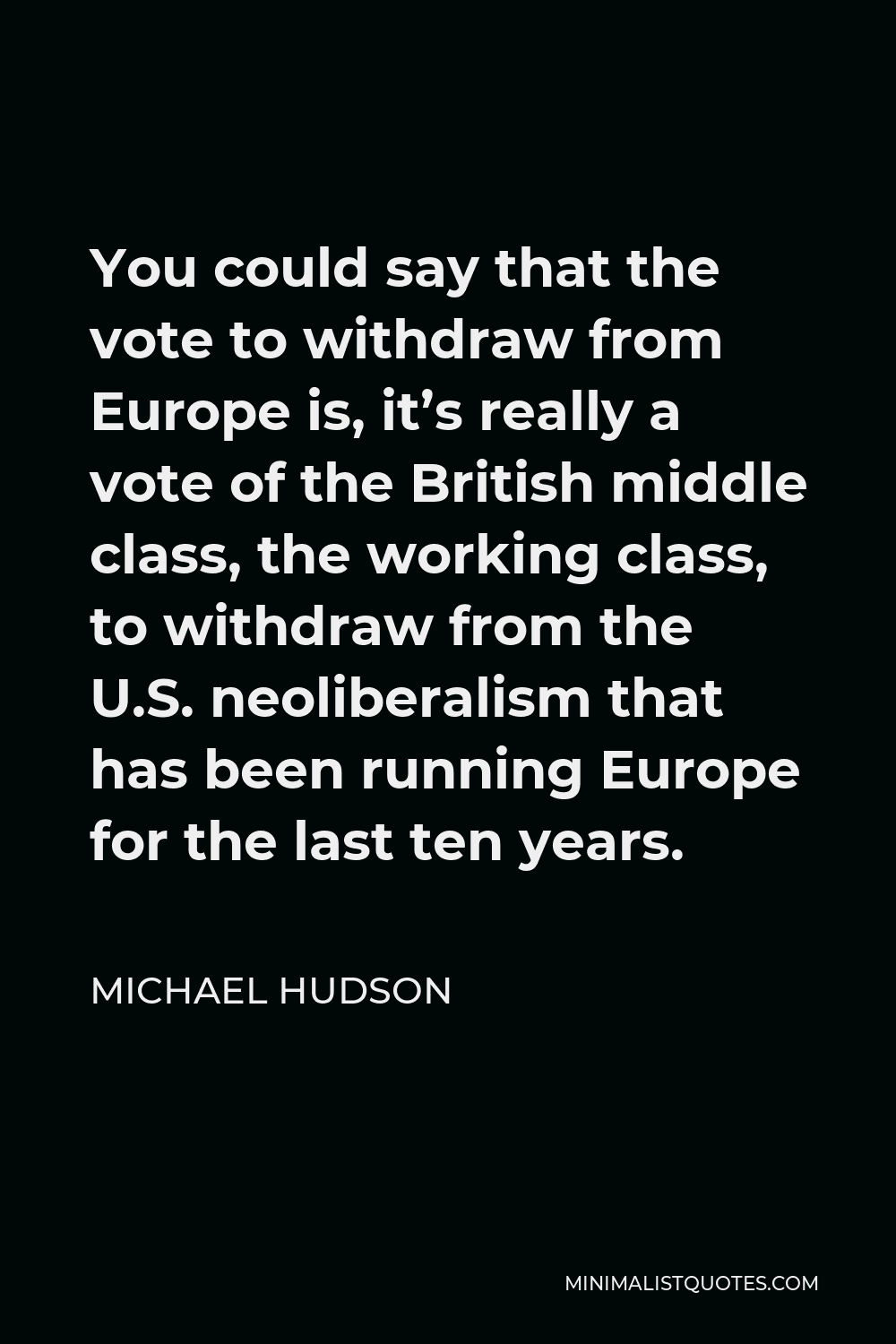
You could say that the vote to withdraw from Europe is, it’s really a vote of the British middle class, the working class, to withdraw from the U.S. neoliberalism that has been running Europe for the last ten years.
MICHAEL HUDSON -





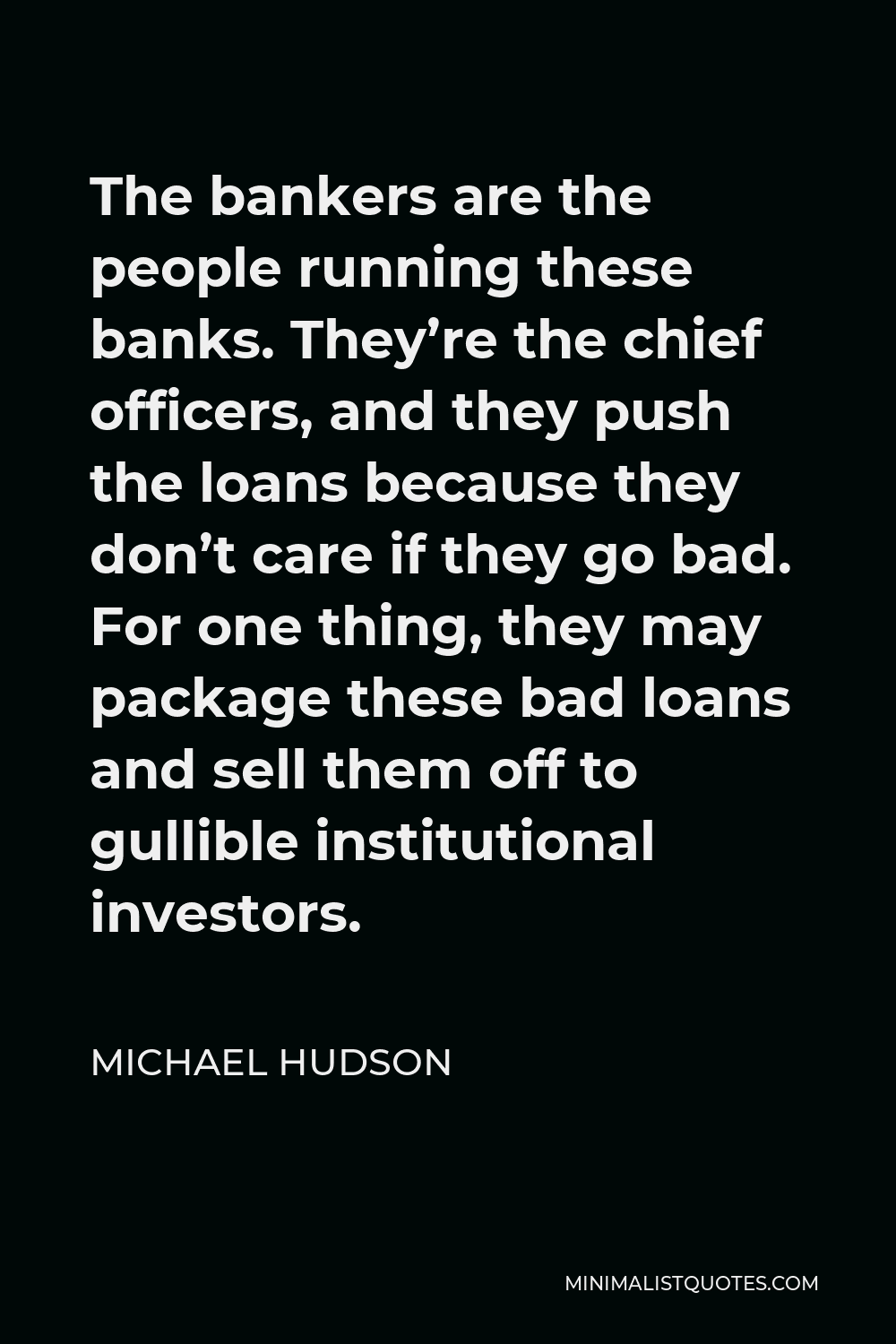
The bankers are the people running these banks. They’re the chief officers, and they push the loans because they don’t care if they go bad. For one thing, they may package these bad loans and sell them off to gullible institutional investors.
MICHAEL HUDSON -






There are so many currency exchange rate problems that people are buying gold as a safe haven. Right now, gold looks like a safe haven if international exchange rates break down.
MICHAEL HUDSON
